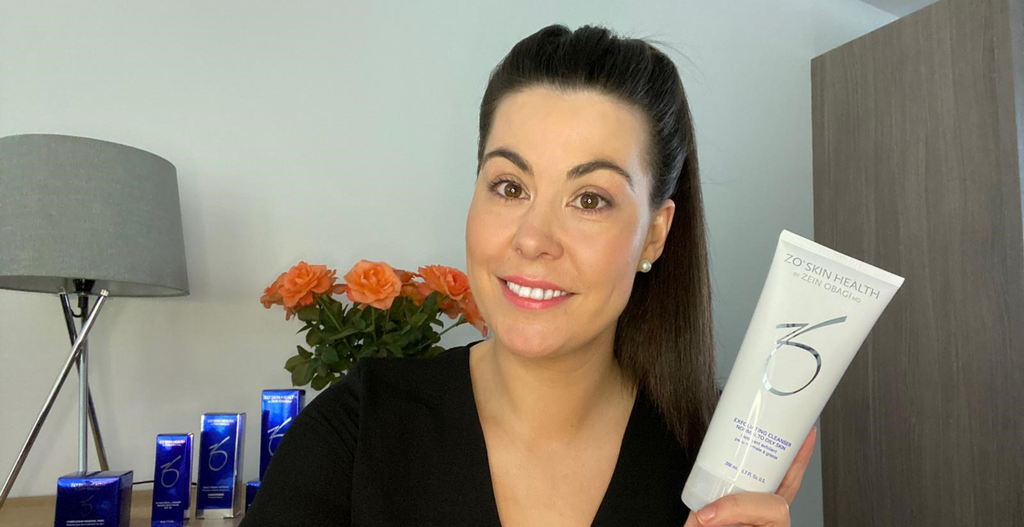The world of skincare acids can be scary, but once you know more about them, you’ll see they’re safe and can work wonders on a range of concerns. Just take lactic acid for example. This ingredient can help with everything from hyperpigmentation to acne, signs of ageing to dull skin.
Here at Face Dr, our skin experts have decades of experience treating thousands of clients. Our experience in the skincare world means we are knowledgeable about the latest ingredients and know which ones are worth adding to your routine. In this article, we’re going to share that knowledge and fill you in on what exactly lactic acid is, what it does for your skin and whether you should start using it.
Interested in learning about the other acids used in skincare? We’ve covered things like bakuchiol and mandelic acid.
What is lactic acid?

Lactic acid is a type of alpha hydroxy acid, or AHA. The ingredient is derived from milk and actually dates back to the Ancient Egyptian times where it’s thought that Cleopatra bathed in milk to soften her skin. Lactic acid can also be made from sugar beet or made synthetically in a lab, so it’s ideal for vegans.
Lactic acid is more gentle than other acids like salicylic acid or glycolic acid, so it’s a great option for those who are just starting out with AHAs or those with sensitive skin.
What does lactic acid do for the skin?
Lactic acid works as an exfoliating agent on the skin, helping dead skins come off more easily and increasing cell turnover.
Here’s what lactic acid can do for your skin:
- Brighten dark spots
- Smooth fine lines and wrinkles
- Even out the skin tone
- Promote a healthy glow
- Smooth rough patches
- Clear up blemishes and acne
How does lactic acid work?
Just like other acids, lactic acid works to break down the bonds that hold dead skin cells together. With these bonds loosened, it’s much easier for these dead, dull and discoloured skin cells to be removed off the skin, revealing a much brighter complexion underneath. Lactic acid also increases cell turnover and stimulates cell renewal, meaning younger and fresher skin cells are made.
Lactic acid is made from larger molecules compared to other acids, so it doesn’t penetrate as deeply into the skin. However, that doesn't mean it isn’t effective. The ingredient is great at exfoliating the surface of the skin and it’s perfect for those who find they react to stronger acids. It also helps to stimulate collagen, which is great for plumping mature skin and promoting a youthful glow.
How do you use lactic acid?

There are a few different types of lactic acid products out there. Daily products, like cleansers and serums, have a low percentage of lactic acid, so they’re safe for everyday use. Stronger percentages are found in products like masks and at-home peels. You can even find lactic acid in in-clinic treatments, like facials and stronger peels.
Start slowly, especially if you have dry or sensitive skin which are more prone to irritation. Before you use a new product, be sure to do a patch test. Try a small amount of the product on your inner wrist, for example, then check back for signs of irritation after about 24 hours. If everything is clear, you can start using the product once or twice a week, and slowly increase this amount until you hit the recommended usage.
Lactic acid may be milder, but it’s still an acid, so watch out if you’re already using harsher products in your routine. If you’re using products like a physical scrub or retinol, it’s usually best to stop using these before you introduce lactic acid into your skincare routine.
Is lactic acid right for me?
As lactic acid is the more gentler AHA, it’s safe for all types of skin, including dry, sensitive and darker skin tones. Even though it can be derived from milk, many experts say it won’t affect people who are lactose intolerant. For vegans, be sure to look out for lactic acid that’s made from sugar beet or that’s made in a lab.
What are the side effects of lactic acid?
Just like with other AHAs, lactic acid can make your skin more sensitive to the sun and therefore more prone to UV damage. Be sure to apply a high-grade sunscreen—like ZO Skin Health’s Daily Sheer Broad Spectrum—every morning, even on overcast days.
There’s also a chance lactic acid can cause some irritation and redness. Be sure to always follow the instructions on the packaging for any product you use and do a patch test before applying to your face.
Products to try with lactic acid

You can find over-the-counter lactic acid products ranging from 5% to 30% strength. Start low if you’ve never used the ingredient before. Here are some ideas to get started:
- Glytone Lactic Superficial Retexturizing Serum
- ZO Skin Health Exfoliation Accelerator
- Medik8 Surface Radiance Cleanse
Why not ask an expert?

If you’re new to using acids, it can be scary to introduce lactic acid into your skincare routine. But the benefits it provides can’t be missed. Why not speak with a skincare expert to ensure you’re using the right strength, brand and product for you?
Here at Face Dr, we offer free online consultations where you can speak with a member of our team. Our skin experts will analyse your skin, listen to your concerns and be able to recommend the perfect product to help. They can answer any questions you have about using lactic acid—or any other ingredient—and help you build the perfect skincare routine to tackle any concern.
In just 30 minutes, you’ll have a professional opinion on the best way to look after your skin. We only ever recommend brands we know provide real results. Plus, there’s never any obligation to make a purchase.
Ready to start a skincare routine worthy of Cleopatra? Book a free consultation today.








